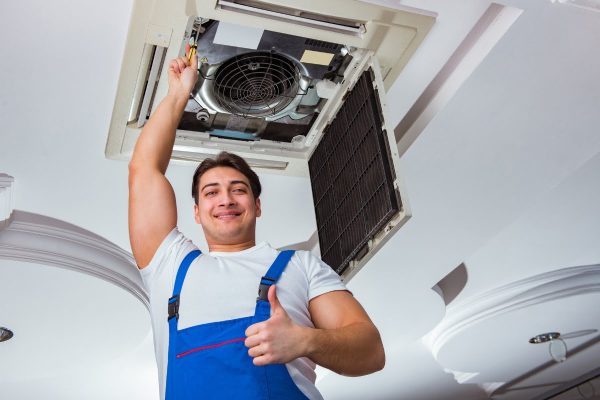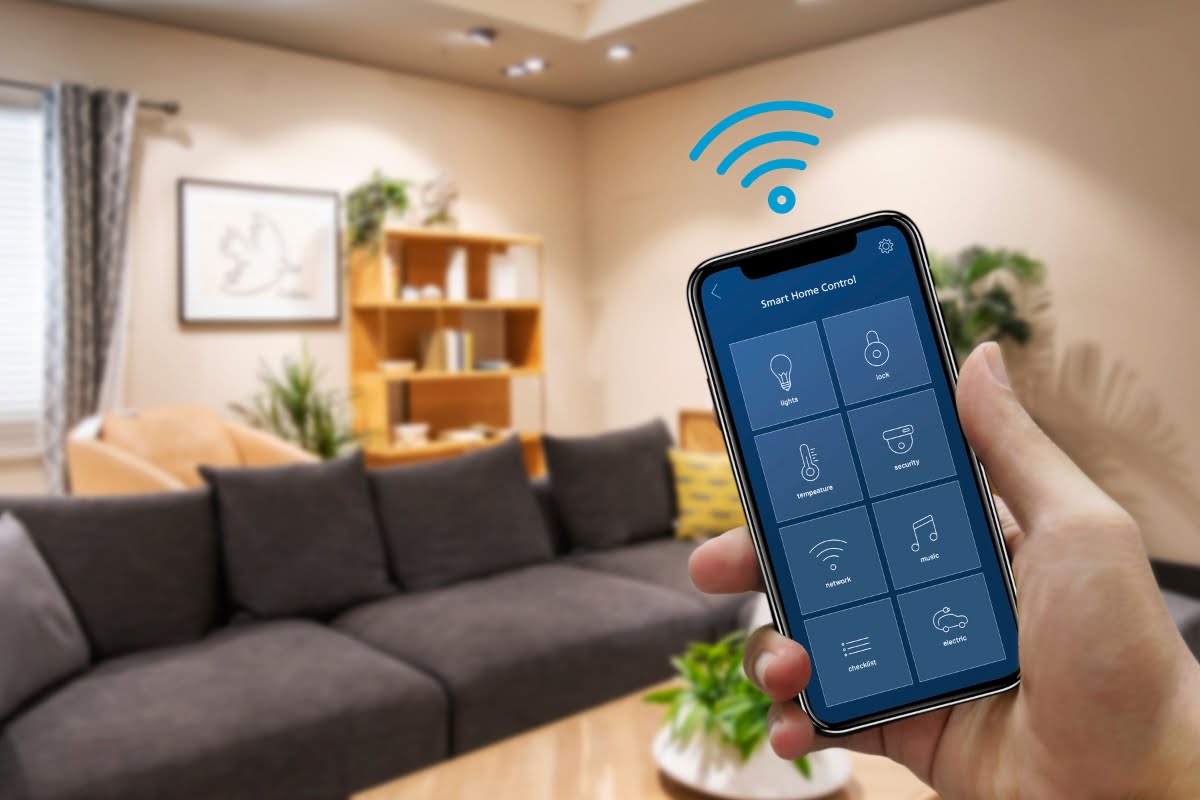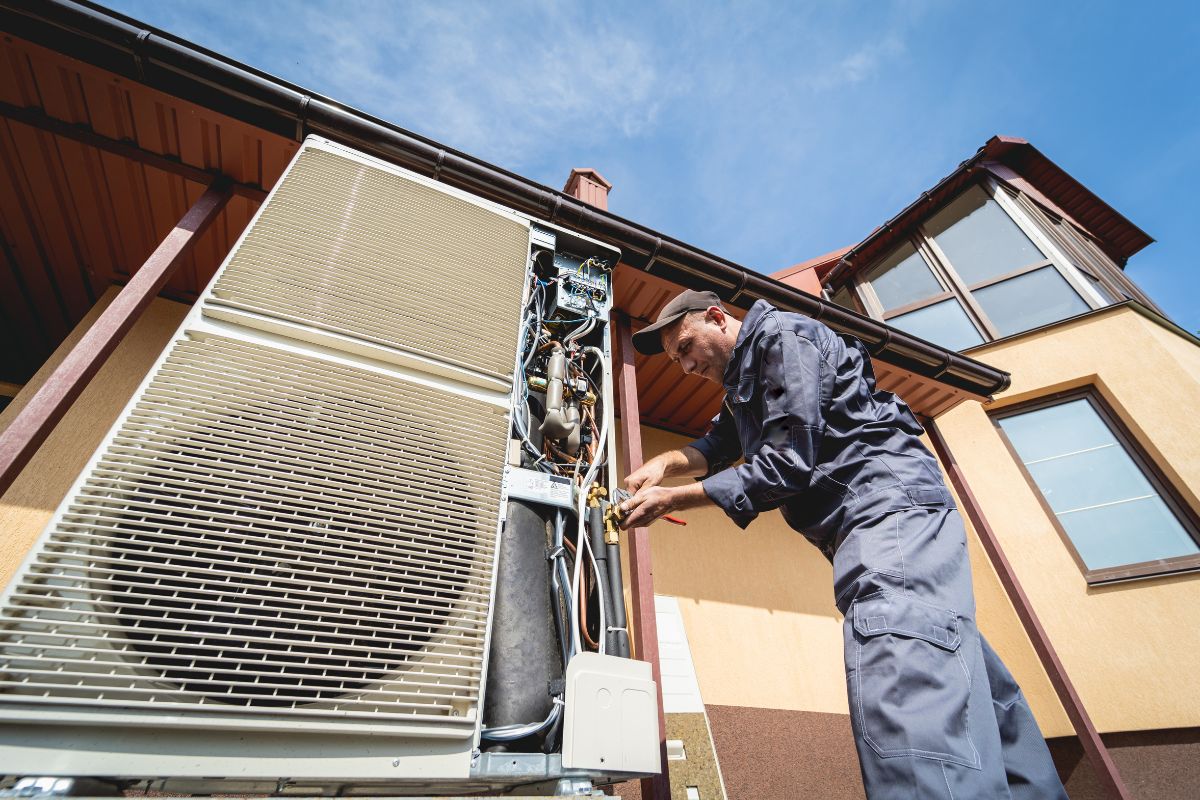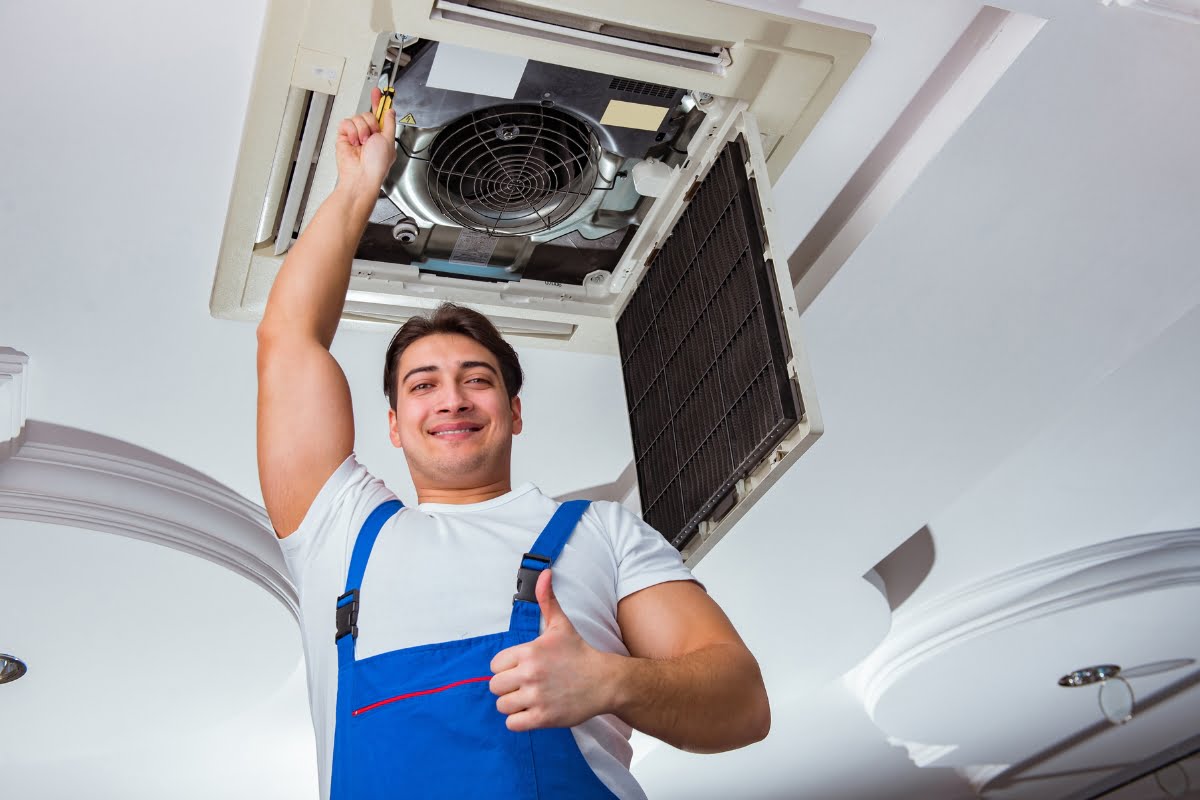Maintaining a healthy home is essential for overall well-being, and your HVAC system plays a critical role in achieving this goal. A well-functioning HVAC system not only regulates temperature and humidity but also improves indoor air quality by filtering out pollutants and allergens.
In this guide, we’ll share valuable tips to help you transform your space into a healthy haven by optimizing your HVAC system. From regular maintenance and filter replacements to incorporating air purifiers and smart technology, these tips will ensure that your HVAC system is running efficiently and effectively.
Whether you’re looking to reduce energy consumption, improve air quality, or simply create a more comfortable living space, discover how to make your home healthier and more comfortable with these essential healthy home HVAC tips.
Clean Air for Healthy Homes: How HVAC Systems Make a Difference
Importance of Indoor Air Quality in Home Health

Indoor air quality (IAQ) is a critical component of healthy home environments. It affects the health and well-being of all occupants, influencing everything from respiratory health to overall comfort. With most people spending a significant portion of their time indoors, ensuring good IAQ is essential for maintaining a healthy lifestyle.
One of the primary reasons indoor air is so important is its direct impact on respiratory health. Poor IAQ can exacerbate conditions such as asthma and allergies, leading to increased respiratory distress and other health issues.
Pollutants like dust mites, mold spores, pet dander, and volatile organic compounds (VOCs) can accumulate indoors, contributing to poor air quality. These particles can trigger allergic reactions, leading to symptoms like sneezing, coughing, and eye irritation. In more severe cases, long-term exposure to pollutants can result in chronic respiratory diseases.
Moreover, poor house indoor air can affect mental well-being. Studies have shown that exposure to polluted indoor air can lead to fatigue, headaches, and difficulty concentrating. These symptoms can significantly impact productivity and overall quality of life. Clean indoor air is crucial for maintaining mental clarity and reducing stress, making it easier to perform daily tasks efficiently.
Another important aspect of indoor air is its influence on sleep quality. High levels of indoor pollutants can disrupt sleep patterns, leading to insomnia or restless sleep. Good air quality helps create a comfortable sleeping environment, allowing the body to rest and recover effectively.
To maintain good IAQ, it is essential to implement measures such as regular HVAC and air conditioner maintenance, the use of air purifiers, and proper ventilation. Regular cleaning and minimizing the use of harsh chemicals can also help reduce indoor pollutants. By prioritizing indoor air, homeowners can ensure a healthier living space, promoting the well-being of all occupants.
Understanding the Role of HVAC Systems Beyond Temperature Control
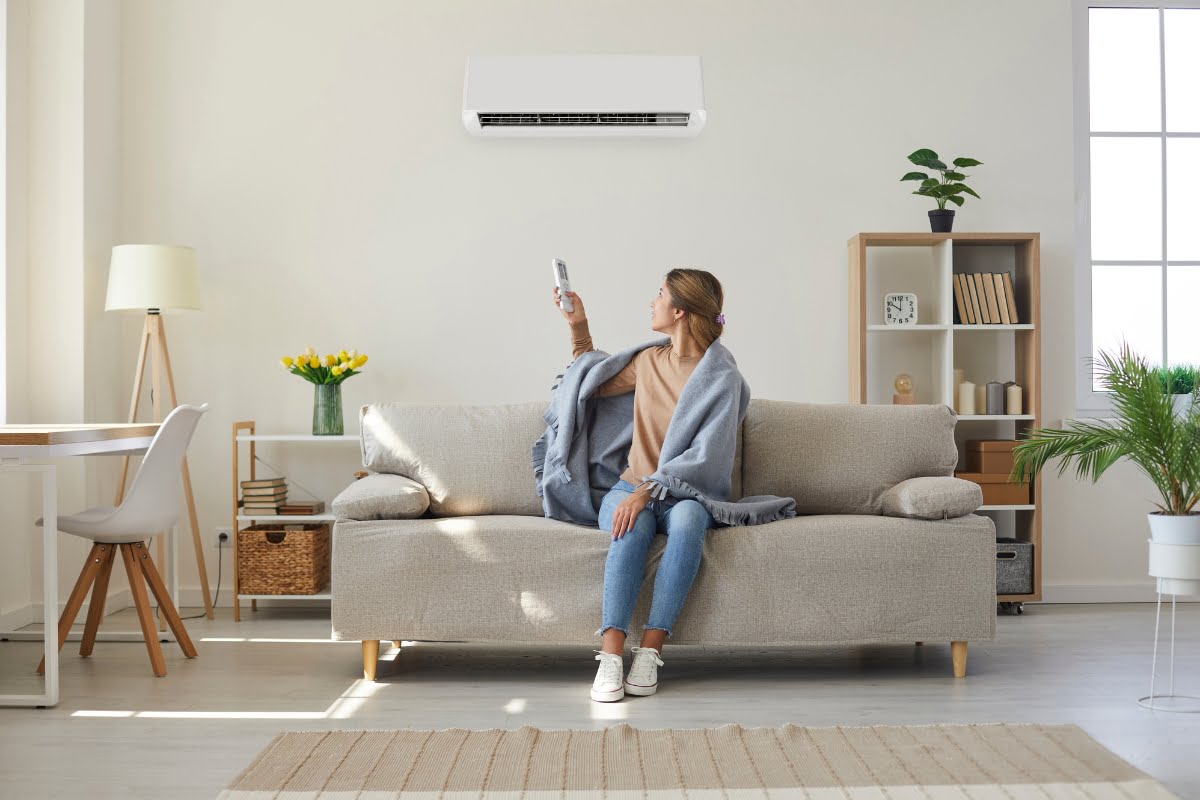
When it comes to healthy home HVAC systems, their role extends far beyond just controlling the temperature of your living space. While we often associate HVAC systems with heating and cooling, their impact on the quality of indoor air and overall health is equally significant.
Optimizing your HVAC system can truly transform your space into a healthier environment. Proper maintenance and regular filter changes are essential for ensuring clean air circulation. By keeping your system clean and well-maintained, you can reduce the presence of allergens and pollutants in the air, promoting better respiratory health for you and your family.
In addition to temperature regulation, a well-functioning HVAC system can help in controlling humidity levels. Maintaining the right humidity levels is crucial for preventing mold growth and minimizing the risk of respiratory issues. Investing in a system with humidity control features can further enhance the comfort and health benefits of your indoor environment.
Furthermore, the choice of HVAC system and the materials used can impact both the environment and your health. Opting for energy-efficient systems not only reduces your carbon footprint but also contributes to cost savings in the long run. Choosing eco-friendly materials for insulation and ductwork can further enhance the overall sustainability of your home HVAC system.
Proper ventilation is another key aspect of home HVAC systems. Adequate ventilation ensures the circulation of fresh air while expelling stale air, preventing the buildup of indoor pollutants. Incorporating air purifiers or ventilation systems with air filters can significantly improve the air quality in your home, creating a healthier living environment for you and your loved ones.
Tips for Optimizing the Quality of Indoor Air Through HVAC Settings
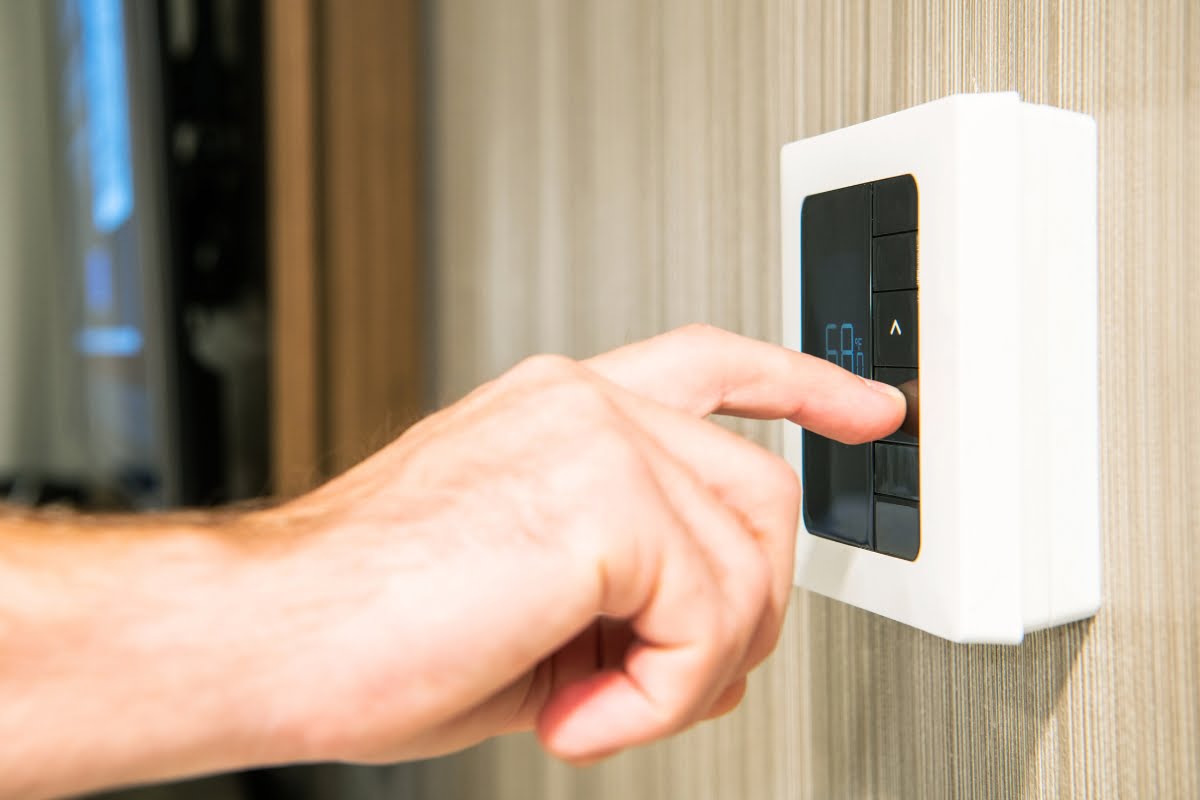
When it comes to optimizing indoor air through HVAC settings, there are several key tips to consider. These tips not only enhance the air you breathe but also contribute to creating a healthier home environment. Let’s delve into some effective strategies for improving your indoor air using your HVAC system.
- Regular Filter Maintenance: One of the fundamental steps in maintaining healthy indoor air quality is to regularly clean or replace your HVAC filters. Clogged filters can harbor dust, allergens, and other particles, reducing the system’s efficiency and circulating pollutants in your home. By ensuring your filters are clean, you can promote better air quality.
- Proper Ventilation: Adequate ventilation is essential for preventing the buildup of indoor air pollutants. Use the ventilation settings on your HVAC system to bring fresh outdoor air inside and exhaust stale air outside. This simple step can significantly improve air circulation and quality in your home.
- Optimal Humidity Levels: Controlling humidity levels is crucial for a healthy indoor environment. Use the humidity settings on your HVAC system to maintain a relative humidity between 30%-50%. This range helps prevent mold growth, dust mites, and other allergens that thrive in high humidity conditions.
- Smart Thermostat Usage: Invest in a programmable or smart thermostat to optimize your HVAC system’s performance. Set temperatures to ensure comfort while also conserving energy. By programming your thermostat to adjust settings based on your schedule, you can enhance the quality of indoor air and save on energy costs.
- Regular HVAC Inspections: Schedule routine maintenance and inspections for your HVAC system to keep it running efficiently. A professional technician can identify and address any issues that may affect air quality, such as leaks, blockages, or malfunctions. Regular servicing extends the lifespan of your HVAC system and ensures the air it circulates is clean.
- Air Purification Systems: Consider installing air purification systems in conjunction with your HVAC system for enhanced air quality. These systems can capture and eliminate airborne particles, allergens, and contaminants, further improving the overall healthiness of your home environment.
By incorporating these tips for optimizing the quality of indoor air through home HVAC settings, you can transform your living space into a healthier and more comfortable oasis. Prioritizing the cleanliness and efficiency of your HVAC system not only benefits your health but also enhances the overall quality of life within your home.
Importance of Regular HVAC Maintenance for Healthy Living
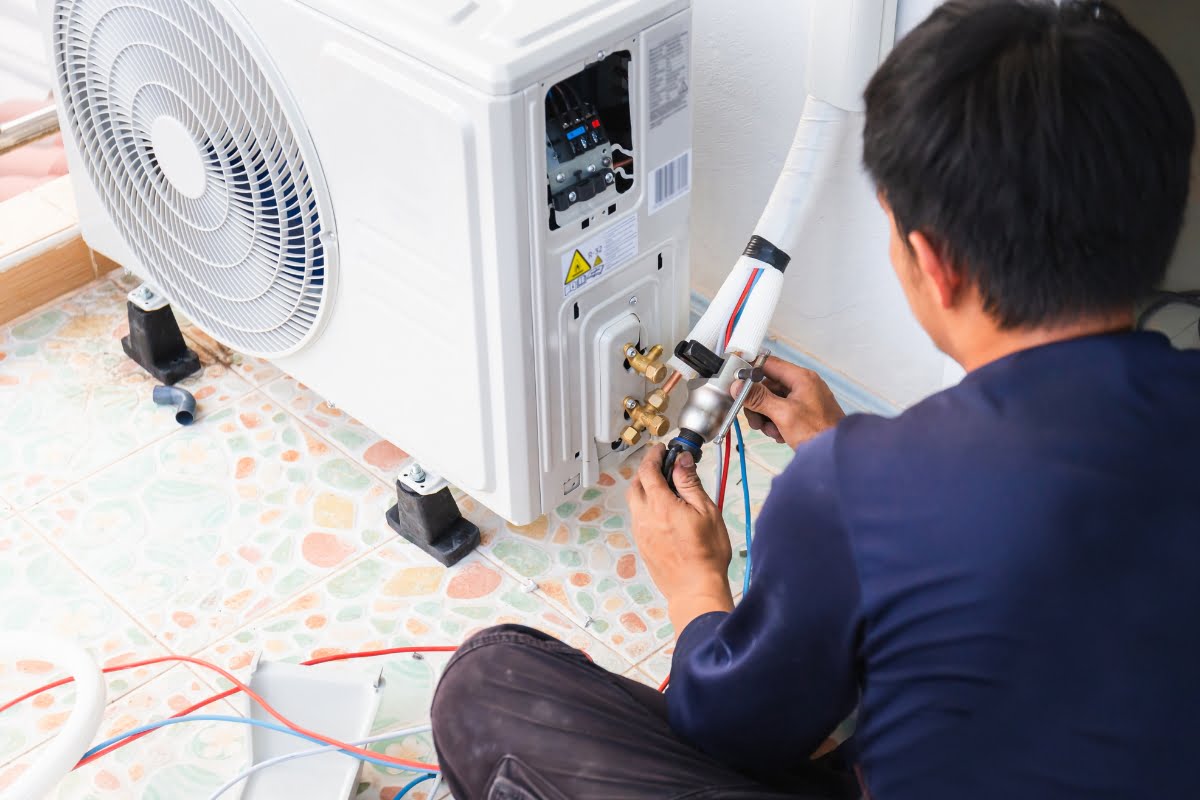
Maintaining a healthy home goes hand in hand with regular HVAC maintenance. A well-functioning HVAC system is essential for creating a comfortable and safe indoor environment, regardless of the season.
Staying on top of regular inspections and maintenance allows you to detect potential issues early on, preventing them from escalating into significant problems. This proactive strategy not only helps you save money in the future but also guarantees optimal performance of your HVAC system.
One of the primary benefits of regular HVAC maintenance is improved indoor air. HVAC systems can accumulate dust, dirt, pollen, and other allergens over time, leading to poor air quality that can affect your health. A well-maintained HVAC system will have cleaner filters and ductwork, which means fewer allergens and pollutants circulating in your home. This is especially important for individuals with allergies, asthma, or other respiratory issues, as it can significantly reduce symptoms and improve overall well-being.
In addition to improving air quality, regular maintenance can enhance the energy efficiency of your HVAC system. When filters, coils, and other components are clean and functioning correctly, the system doesn’t have to work as hard to maintain the desired temperature. This increased efficiency reduces energy consumption, lowering your carbon footprint and saving you money on utility bills. Regular maintenance can also extend the lifespan of your HVAC system by reducing wear and tear on critical components.
Moreover, HVAC maintenance plays a vital role in preventing unexpected breakdowns and costly repairs. Routine checks allow technicians to identify and address minor issues before they escalate into significant problems that could lead to system failure. By ensuring that your HVAC system operates smoothly year-round, you can avoid inconvenient and potentially expensive emergency repairs.
Another important aspect of HVAC maintenance is its impact on humidity control. A well-maintained system can effectively regulate indoor humidity levels, preventing the growth of mold and mildew, which thrive in damp conditions. Proper humidity control contributes to a healthier living environment and helps protect your home and belongings from moisture-related damage.
Don’t underestimate the impact that regular maintenance can have on both your health and your wallet. By investing in routine HVAC care, you’re not only safeguarding your home and enhancing comfort but also promoting a healthier lifestyle. Remember that regular maintenance is a small but crucial step toward maintaining a sustainable and efficient home environment that supports your family’s well-being.
Utilizing Air Purifiers and Filters for Improved Air Quality
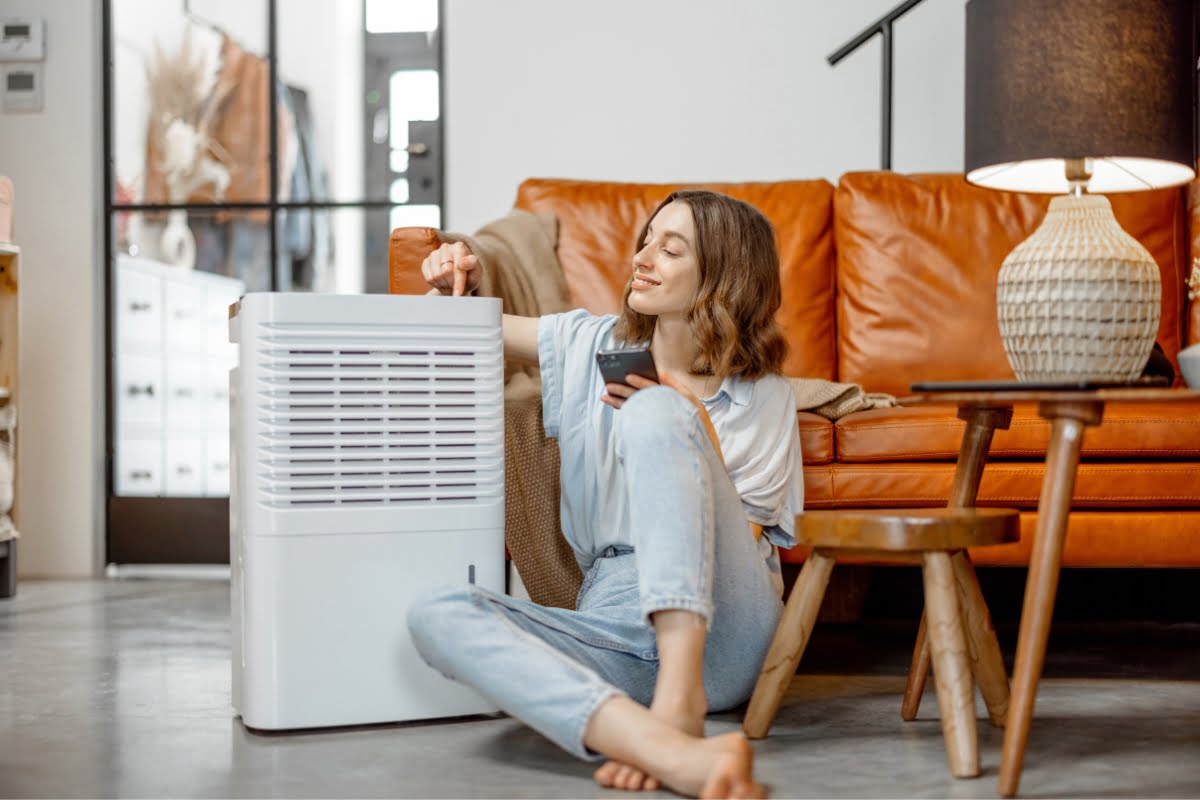
If you want to take the quality of your indoor air to the next level, consider utilizing additional air purifiers and filters throughout your home. These devices work alongside your HVAC system to provide an extra layer of filtration, significantly improving the quality of the air you breathe.
Air purifiers and filters can effectively remove a wide range of pollutants, including dust, pet dander, pollen, smoke, mold spores, and even harmful gases and chemicals. This is particularly beneficial for individuals with allergies or asthma, as cleaner air can alleviate symptoms and promote overall respiratory health.
Types of Air Purifiers:
- HEPA Filters: High-Efficiency Particulate Air (HEPA) filters are among the most effective air purifiers, capable of capturing up to 99.97% of airborne particles as small as 0.3 microns. These filters are excellent for removing dust, pollen, and other allergens, making them a top choice for allergy sufferers.
- Activated Carbon Filters: These filters are designed to absorb gases, odors, and volatile organic compounds (VOCs) from the air. They are particularly useful in homes with smokers or strong cooking odors, as they can neutralize unpleasant smells and reduce exposure to harmful chemicals.
- UV-C Light Technology: UV-C light technology, incorporated in certain air purifiers, serves the purpose of eliminating bacteria, viruses, and mold spores. Through DNA disruption of these microorganisms, UV-C light aids in diminishing their airborne presence, thereby promoting a more healthful indoor setting.
- Ionizers and Ozone Generators: Caution must be exercised when using ozone generators since elevated ozone concentrations can have adverse effects on respiratory well-being, despite their effectiveness in emitting charged ions to attract airborne particles, leading them to settle on surfaces or get trapped in filters.
To maximize the benefits of air purifiers, place them strategically in areas where you spend the most time, such as bedrooms and living rooms. Bedrooms are particularly important as we spend a significant portion of our time sleeping, and breathing clean air can improve sleep quality and overall health.
For homes with multiple levels, consider placing an air purifier on each floor to ensure comprehensive coverage. Additionally, place purifiers near sources of pollution, such as kitchens or areas with heavy foot traffic, to effectively capture pollutants at their origin.
Consider integrating whole-house air purifiers with your HVAC system. These systems can filter air throughout your entire home, providing consistent air quality improvements and reducing the burden on portable units.
Reducing Allergens with HVAC System Enhancements

If you or your family members suffer from allergies, your HVAC system can be a powerful ally in reducing allergens in your home. Enhancing your HVAC system to capture and eliminate airborne allergens can create a healthier indoor environment, leading to significant relief from allergy symptoms.
One way to achieve this is by upgrading to a high-efficiency filter that can capture smaller particles. Standard HVAC filters typically capture larger particles, but they often miss finer particles that contribute to allergic reactions. By investing in higher-grade filters, you can improve the air quality in your home significantly.
Upgrading to HEPA Filters
HEPA Filters: High-Efficiency Particulate Air (HEPA) filters are especially effective at trapping allergens like pollen, pet dander, dust mites, mold spores, and even certain bacteria. These filters are designed to capture 99.97% of particles that are 0.3 microns or larger, making them ideal for allergy sufferers.
- Installation: By installing HEPA filters in your HVAC system, you can significantly reduce the presence of allergens in the air you breathe. It’s crucial to ensure that your HVAC system is compatible with HEPA filters, as their dense material may require more powerful fan motors.
- Regular Maintenance: Remember to change these filters regularly for optimal performance. Over time, filters can become clogged with trapped particles, reducing their effectiveness and increasing strain on the HVAC system. Replacing filters every 1-3 months, or according to manufacturer recommendations, will ensure consistent allergen control.
Additional Enhancements for Allergen Reduction
- UV Light Systems: Consider installing UV light systems within your HVAC unit. These lights kill mold spores, bacteria, and viruses, preventing them from circulating through your home. UV systems can be particularly beneficial in damp climates where mold growth is more prevalent.
- Humidity Control: Maintaining proper humidity levels in your home can reduce the proliferation of allergens such as mold and dust mites. Use a humidifier or dehumidifier to keep indoor humidity between 30% and 50%, which is the optimal range for minimizing allergen growth.
- Duct Cleaning: Over time, allergens and dust can accumulate within your ductwork. Regular duct cleaning can remove these build-ups, ensuring that your HVAC system is not spreading allergens throughout your home. Consider having your ducts professionally cleaned every few years or more frequently if allergies persist.
- Whole-House Air Purifiers: Integrating a whole-house air purifier with your HVAC system can further enhance allergen reduction. These systems provide comprehensive filtration, ensuring that clean air is distributed evenly across all rooms.
- Regular Maintenance: Schedule routine maintenance for your HVAC system to ensure that it operates efficiently and effectively. Professional technicians can inspect, clean, and service your system, addressing any issues that might impact air quality.
- Zoning Systems: Implement zoning systems to control airflow in specific areas of your home. This allows you to isolate rooms with high allergen concentrations, preventing them from affecting the entire house.
By implementing these HVAC system enhancements, you can create a more allergen-free home environment. Not only will this improve comfort and well-being for allergy sufferers, but it will also contribute to a healthier and more enjoyable living space for everyone in the household.
Harnessing Smart Technology for Enhanced HVAC Performance
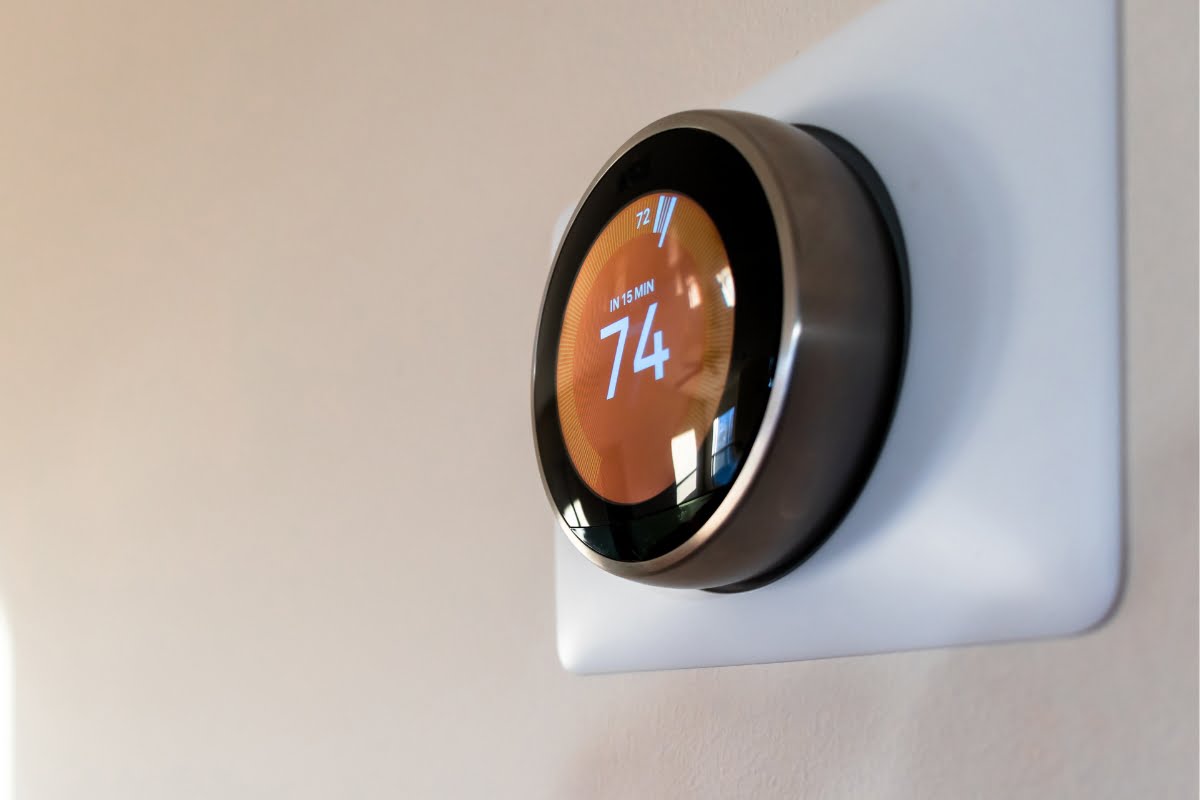
In today’s digital age, smart technology has made its way into almost every aspect of our lives—including HVAC systems. By harnessing the power of smart thermostats and other connected devices, you can enhance the performance of your HVAC system while promoting a healthy environment at home.
Remote Control and Accessibility: Smart thermostats allow you to control temperature settings remotely using your smartphone or tablet. Whether you’re at home, at work, or on vacation, you can easily adjust your HVAC system to suit your preferences. This flexibility ensures that your home is always at the optimal temperature for comfort and health, reducing the need for manual adjustments and increasing overall convenience.
Personalized Schedules: Smart thermostats enable you to create personalized schedules based on your lifestyle and daily routines. For example, you can program your thermostat to lower the temperature during the night for better sleep or increase it during the day when you’re home. This feature not only enhances comfort but also contributes to significant energy savings by ensuring that your HVAC system operates only when needed.
Energy Efficiency: By optimizing temperature settings and reducing unnecessary heating or cooling, smart thermostats help improve energy efficiency. Many smart thermostats provide energy usage reports, allowing you to monitor consumption and identify areas for improvement. Over time, this can lead to lower utility bills and a reduced carbon footprint.
Advanced Features of Smart HVAC Technology
- Geofencing: Many smart thermostats utilize geofencing technology, which uses your smartphone’s location to adjust your home’s temperature automatically. For instance, the thermostat can lower the temperature when it detects that you’ve left the house and start heating or cooling as you approach home, ensuring optimal comfort upon arrival.
- Learning Capabilities: Some advanced smart thermostats have learning capabilities that adapt to your habits over time. They can automatically adjust settings based on your preferences, without manual input, providing a seamless and personalized experience.
- Integration with Smart Home Systems: Smart thermostats can integrate with other smart home devices and systems, such as voice assistants like Amazon Alexa or Google Assistant. This allows you to control your HVAC system using voice commands and create comprehensive home automation routines that enhance convenience and efficiency.
- Alerts and Maintenance Reminders: Smart technology can provide alerts and maintenance reminders, notifying you when it’s time to change filters or schedule service appointments. This proactive approach ensures that your HVAC system operates smoothly and efficiently, preventing potential issues before they become costly problems.
- Air Quality Monitoring: Some smart HVAC systems include air quality monitoring features, which track indoor air pollution levels. They can adjust ventilation settings or notify you when air quality deteriorates, helping to maintain a healthy indoor environment.
- Zoning Control: Smart HVAC technology enables zoning control, allowing you to customize temperature settings in different areas of your home. This is especially useful in larger homes where certain rooms may require different heating or cooling needs. Zoning ensures that each area receives optimal comfort without wasting energy.
By incorporating smart technology into your HVAC system, you gain numerous benefits beyond energy efficiency and convenience:
- Cost Savings: The ability to optimize energy usage leads to lower utility bills, saving you money in the long run.
- Improved Comfort: Personalized schedules and learning capabilities ensure that your home environment is always tailored to your preferences.
- Environmental Impact: Enhanced efficiency and reduced energy consumption contribute to a smaller carbon footprint, promoting environmental sustainability.
- Peace of Mind: Alerts and remote access provide peace of mind, knowing that you can monitor and control your HVAC system anytime, anywhere.
Incorporating smart technology into your HVAC system is an investment in both comfort and sustainability. By taking advantage of these advanced features, you can ensure that your home remains a comfortable and healthy environment while optimizing energy usage and reducing costs.
Conclusion: Creating a Healthy Home System with Optimized HVAC Systems
Your HVAC system plays a vital role in creating a healthy home environment. From maintaining indoor air to regulating humidity levels and reducing allergens, it goes beyond mere temperature control. With these healthy home HVAC tips, every breath you take will be as refreshing as a cool, crisp morning.
Transforming your space with a healthy home HVAC system not only improves air quality but also enhances comfort and efficiency. To ensure your HVAC system is optimized for health and performance, trust A.D. Campbell HVAC. Our team of experts is dedicated to providing top-notch HVAC services tailored to your needs. Contact us today at (404) 882-8226 or visit our website to fill out the service request form to get your HVAC serviced today.
